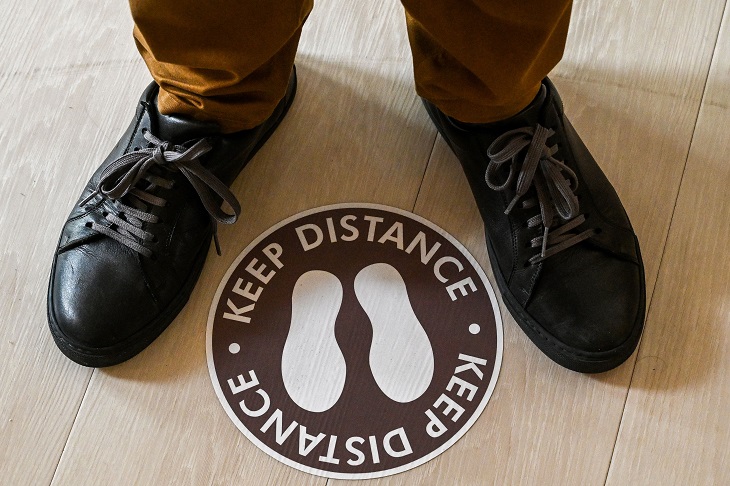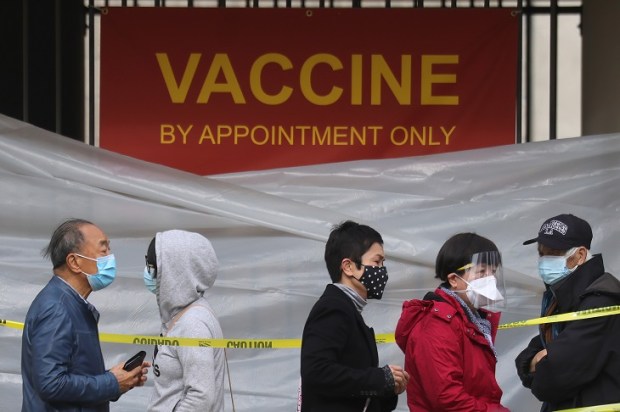It’s a story I’ve heard far too many times. ‘There was no mention of any possible serious side effects other than the after your Covid vaccination information sheet I was handed on the way out. If only I’d known.’
What followed is the now all-too-familiar story of repeated emergency room presentations, doctor visits, and an array of diagnoses including chest pain (cause unknown), pericarditis, myocarditis, Bell’s palsy, fibromyalgia, neuralgia, and fatigue, just to name a few.
Months later, patient X is still suffering from crippling symptoms and is struggling to recover.
‘If only I’d known.’ Those words come back to me. It’s apparent that one of the foundational requirements of good medical practice has been omitted from the original consultation, that of ‘informed consent.’
Australia’s medical Code of Conduct, the statutory rules for medical practitioners, defines informed consent as ‘a person’s voluntary decision about medical care that is made with knowledge and understanding of the benefits and risks involved’.
In addition, the Australian Immunisation Handbook states: ‘For consent to be legally valid … it must be given voluntarily in the absence of undue pressure, coercion, or manipulation … and it can only be given after the potential risks and benefits of the relevant vaccine, the risks of not having it, and any alternative options have been explained to the person.’
Think back to the last time you gave consent for a medical procedure or, dare I say it, a vaccination. Were you taken through this process?
There’s more. What happens to consent if you’re involved in a clinical trial?
Former barrister, Julian Gillespie, explains:
‘There is a portion towards the end of the medical Code of Conduct, which … clearly addresses if you are a medical practitioner and you are involved in a clinical or experimental trial … then there’s all these further procedures and protocols that must be satisfied.’
Surely that would only apply in the circumstances of an experimental trial, wouldn’t it?
As it happens, that’s what we’ve been doing for the past couple of years. ‘We heard it out of former health minister, Greg Hunt’s lips, and several others,’ Gillespie says. ‘It’s well acknowledged that these Covid vaccines have only been provisionally approved and are still subject to clinical trials.’
Julian Gillespie LLB, BJuris, is co-author, with Peter Fam LLB, of a recently published bombshell legal opinion casting doubt on the legal basis of AHPRA’s March 9, 2021 ‘gag order’.
The opinion was issued with a letter stating:
‘Contingent to a joint statement received from AHPRA and the National Boards on 9 March 2021, Australian Health Professionals … were essentially forbidden from publicly questioning the science underlying the emerging Covid injectables, let alone questioning any government messaging urging Australians to be vaccinated, because these products were deemed “safe and effective”.
‘The effect of this unilateral action … inserted AHPRA and the National Boards between the Clinician and their Patient, which resulted in a serious failure of evidenced-based information being shared by Health Professionals with patients … for the purpose of their providing legally acceptable Informed Consent to receiving Covid injectables.
‘This failure in Informed Consent has likely resulted in hundreds of thousands, if not millions of Australians agreeing to the administration of Covid injectables, where they would not have so agreed or consented had they been provided with all the available evidenced-based information… including that they expose a recipient to a real and significant risk of death, injury, or illness.’
What does this mean?
Essentially, the legal opinion posits that it was illegal for AHPRA and the National Boards to even produce the position statement. Health Professionals were always required to first observe their Codes of Conduct irrespective of the various coercive and threatening statements made in the March statement.
But wait, there’s more.
It also appears the public officers responsible for that statement are now legally exposed:
‘As the harm to Covid vaccine victims was foreseeable, in terms of these still remaining experimental gene-based therapies, these vaccine victims … can sue the public offices of AHPRA and the National Boards in their personal capacity,’ says Gillespie.
It doesn’t stop there. There may be further liability available to health practitioners who administered the vaccines in breach of their Codes of Conduct. Gillespie adds, ‘Should those health practitioners subsequently be sued by their patients … then those health practitioners may, in turn, be able to sue the public officers of AHPRA and the National Boards for coercing and threatening them to ignore their Codes of Conduct. Such illegal action would be the tort of misfeasance in public office.’
I’ll just let that all sink in.
The legal opinion was sent to all medical associations and colleges, nearly 70 of them, all Australia’s politicians, state, federal, and territory, and medical professional insurers.
Oh, and it was also sent to over 300 of Australia’s top personal injury and medical negligence lawyers.
No one’s missing out on this one.
The legal opinion was helpfully accompanied by a 107-page report reviewing the evidence and adverse event data for Covid vaccines. It’s an alarming read.
But wait – there’s (even) more.
Proposed changes to Health Practitioner National Law, due to be debated in the Queensland Parliament on October 11, 2022, are set to give AHPRA even more power to interfere with the doctor/patient relationship.
These proposed amendments have medical organisations extremely concerned including the Royal Australian College of General Practitioners, the Australian Medical Association, the Australian Medical Network (AMN), and the Australian Medical Professionals Society.
If passed, ‘Doctors will no longer be able to express their opinion or use their experience, training, and education if their opinion goes against what the health bureaucrats say is in the best interests of public confidence in safety,’ says AMN.
And the changes won’t stop in Queensland. The amended National Law will then be rolled out to other jurisdictions. All Australians should be concerned.
The Australian Medical Professional Society says, ‘Health regulation is not being used to protect the public from legitimate professional misconduct but is being used to silence Health Professionals from questioning government policy as a matter of routine.’
If the legislation comes to pass, it begs the question: when a patient goes to visit their doctor how will they know if they are receiving the doctor’s professional opinion or the government’s latest edict?
The March 9, 2021 joint position statement has given Australia a taste of what might come if we don’t stand up to this obscene imposition by regulators in the consultation room.
In the words of ‘Dr Frank Mercy’ – an Australian doctor who writes under a pseudonym for fear of reprisal – ‘This is our Stalingrad. Defeat here will open the field to unlimited human resources for oppressive forces that can never be turned back. We must oppose this with all our resolve.’
Dr Julie Sladden is a doctor and freelance writer with a passion for transparency in healthcare.
For more information see Stop Medical Censorship campaign
*Patient ‘X’ is fictitious and based on a collection of stories told over the past 18 months, which I have permission to share.
Got something to add? Join the discussion and comment below.
Get 10 issues for just $10
Subscribe to The Spectator Australia today for the next 10 magazine issues, plus full online access, for just $10.


























Comments
Don't miss out
Join the conversation with other Spectator Australia readers. Subscribe to leave a comment.
SUBSCRIBEAlready a subscriber? Log in